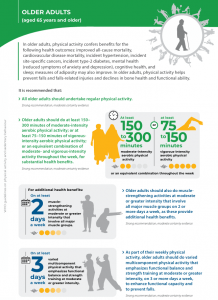Exercise has long been hailed as a cornerstone of good health, offering benefits that extend far beyond physical fitness.
Recent research sheds light on how exercise can keep the brain young, enhancing cognition, mood, and reducing the risk of neurodegenerative diseases.
We have recently also interviewed Dr. Low Chung Min, a Geriatrician from Sunway Medical Centre Penang, to find out more about exercising and how it keeps our brain young.
The Broad Benefits of Exercise
Regular physical activity is known to improve muscle strength, heart health, and blood sugar levels, among other benefits.
Activities such as running, biking, lifting weights, or even taking a brisk walk not only enhance physical appearance and stamina but also have profound effects on mental well-being.
Evidence suggests that exercise can boost mood, alleviate stress, and sharpen cognitive function, highlighting the deep connection between body and mind.
However, it’s important to note that different people may respond differently to various forms of exercise.
While aerobic workouts and strength training are generally beneficial, individual responses can vary.
How Exercise Affects the Brain
Recent studies, including those led by Stanford Medicine, have explored the mechanisms through which exercise promotes brain health.
These studies involved examining the effects of endurance exercise on lab rats, revealing significant impacts on the immune system, stress response, energy production, and metabolism.
The findings suggest that exercise can enhance brain health by promoting neurogenesis (the formation of new neurons) and synaptic plasticity (the ability of synapses to strengthen or weaken over time).
One study, published in Nature, involved over 10,000 measurements across various tissues, examining the impact of eight weeks of endurance exercise.
The results showed remarkable effects on molecules and genes associated with numerous human diseases and tissue recovery.
For instance, exercise was found to up-regulate mitochondrial genes in skeletal muscle and liver tissues, which are typically down-regulated in individuals with type 2 diabetes and cirrhosis, respectively.
These findings suggest that endurance training may help improve muscular function in diabetes and boost liver health.
Molecular and Cellular Insights
Understanding how exercise affects the body at the molecular level can help tailor exercise recommendations more effectively.
For example, researchers found that exercise-induced changes in mitochondrial gene expression differed between male and female rats.
After eight weeks, male rats lost about 5% of their body fat, while female rats did not lose a significant amount but maintained their initial fat percentage.
This highlights the need for personalised exercise regimens based on sex and other factors.
Another study from The University of Queensland, published in Aging Cell, demonstrated that exercise might deter cognitive decline by influencing gene expression in microglia, the brain’s immune cells.
Exercise was found to revert the gene expression patterns of aged microglia to those seen in young microglia, suggesting that physical activity can rejuvenate immune cells in the brain.
Expert Insights
To provide a comprehensive view, we reached out to experts in the field. Dr. Low Chung Min, a Geriatrician from Sunway Medical Centre Penang, emphasised that regular physical exercise significantly influences brain health on a molecular level, particularly in relation to neurogenesis and synaptic plasticity.
“Exercise affects gene expression in brain cells, such as microglia, which play a crucial role in cognitive function,” he explained.
Dr. Low shared insights on the relationship between exercise and cognitive decline in older adults.
“Numerous observational studies show an inverse relationship between physical exercise and the risk of dementia,” he noted.
However, he also pointed out that the protective effects of exercise are not conclusively proven, though regular physical activity as part of vascular risk factor modification remains vital for dementia prevention.
“Vascular risk factor reductions of 10-25% may prevent up to half of Alzheimer’s disease cases,” he added.
Optimal Exercises for Cognitive Health

Source: WHO Guidelines on Physical Activity and Sedentary Behaviour 2020
Exercises can generally be classified into four categories: aerobic exercise, muscle strengthening, flexibility, and balance.
According to Dr. Low, “There is no specific recommendation for one type of exercise to maintain cognition, but engaging in physical activity at moderate or greater intensity on three or more days per week is encouraged.”
For older adults new to exercise or those with mobility issues, Dr. Low advised, “Even initiating exercise in your 80s can demonstrate survival benefits. Start with light intensity exercises before progressing to moderate or vigorous intensity, and consult your doctor to tailor the exercise to your current health status.”
Dr. Low emphasised the importance of various forms of exercise for brain health and pointed out that aerobic exercises, strength training, and balance exercises are particularly beneficial.
Activities that combine physical and cognitive challenges, such as dance or tai chi, can be especially effective for certain aspects of brain health.
While the benefits of exercise are clear, individual variability due to genetics and baseline health can affect outcomes. Further research is needed to determine the long-term sustainability and optimal types and intensities of exercise for different populations.

